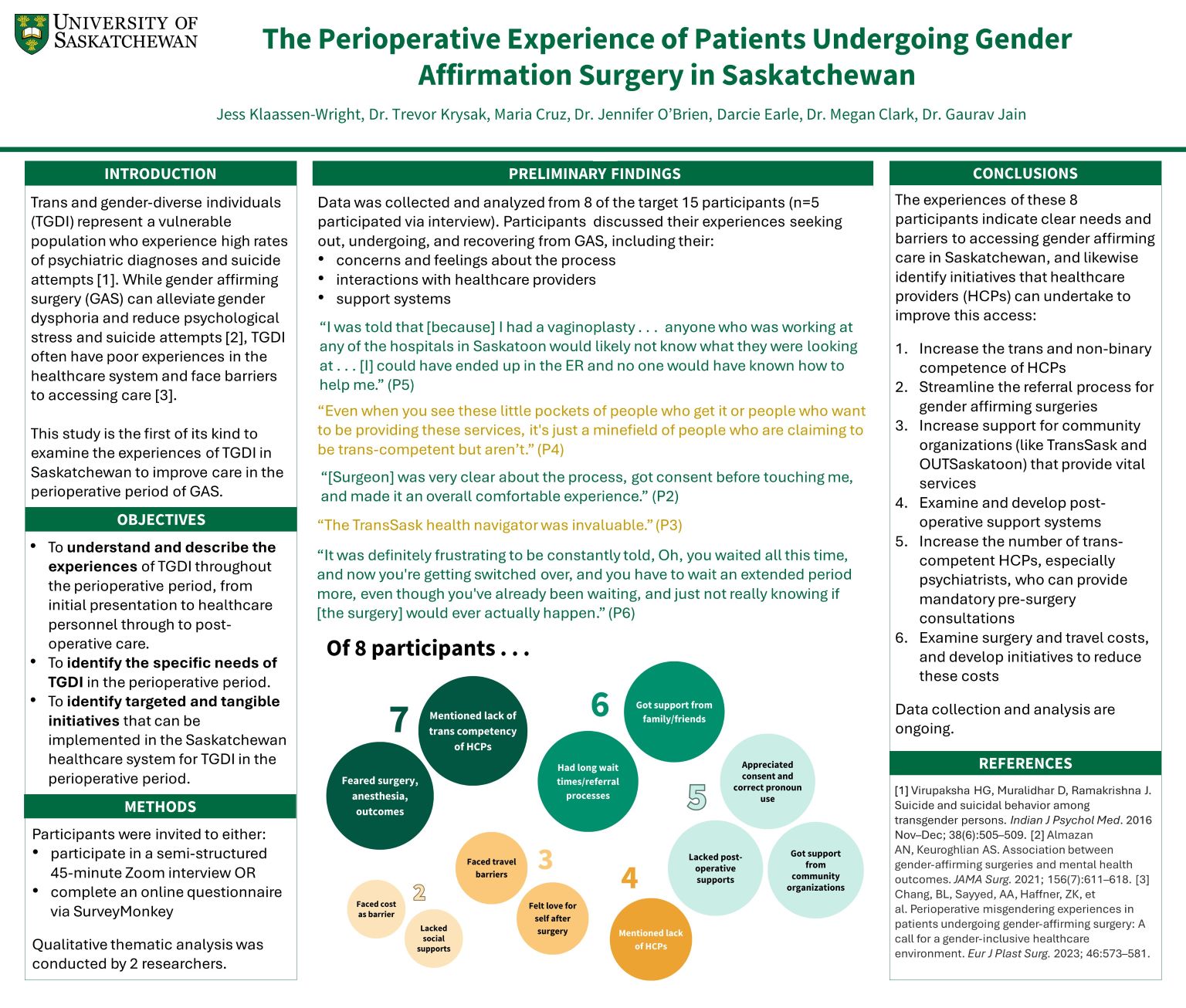
The Perioperative Experiences of Patients Undergoing Gender Affirmation Surgery in Saskatchewan
Jess Klaassen-Wright
Transgender and gender-diverse individuals (TGDI) may undergo surgical procedures to align their physical attributes and gender identity. This group continues to be marginalized in healthcare spaces and experiences high rates of psychiatric diagnoses and suicide. While gender affirmation surgery (GAS) can reduce gender dysphoria and improve psychological stress, TGDI have poor experiences in the healthcare system and face barriers to accessing equitable care. Literature on the experiences of patients undergoing GAS is sparse, and this study aims to fill this gap to understand the needs of TGDI and improve the process in future. Eight participants completed semi-structured interviews (n=5) or online questionnaires (n=3) about their surgical experiences in Saskatchewan. Data was analyzed with qualitative thematic analysis. Participants discussed barriers, including lack of trans competency in healthcare providers (HCPs) and long wait times. They also discussed support systems like community organizations and family, as well as emotions like fear, excitement, and love for self. These preliminary themes connect to initiatives that could be implemented in Saskatchewan to improve the perioperative experience for TGDI, including increasing the number of trans competent HCPs, streamlining the referral process, increasing support for community organizations, developing post-operative supports, and reducing travel and surgical costs.
